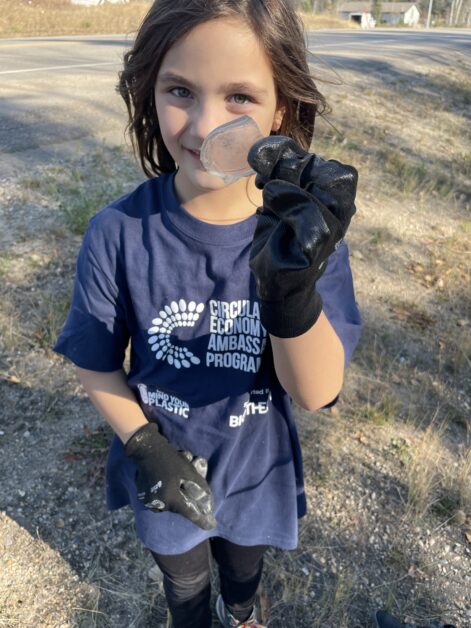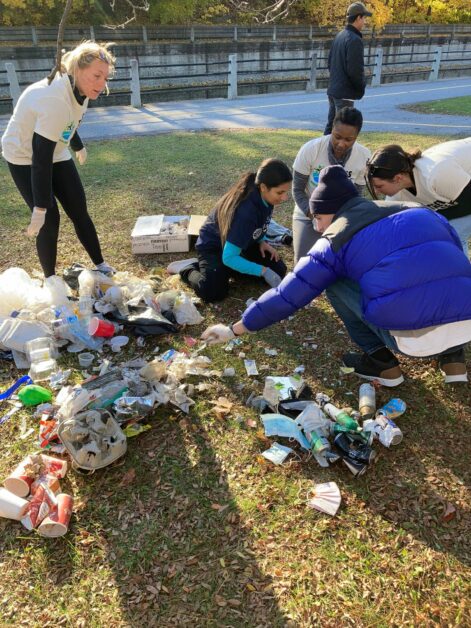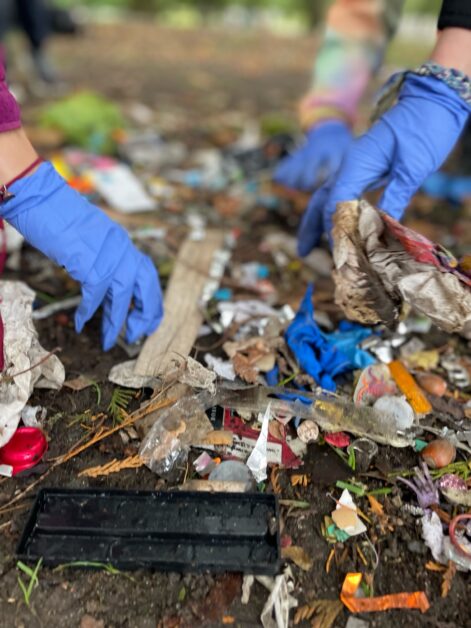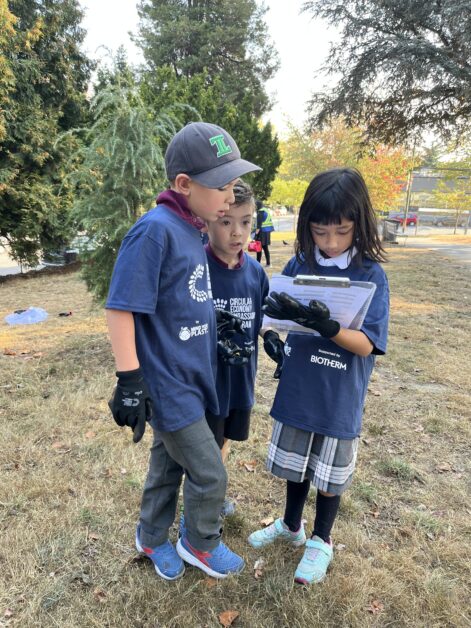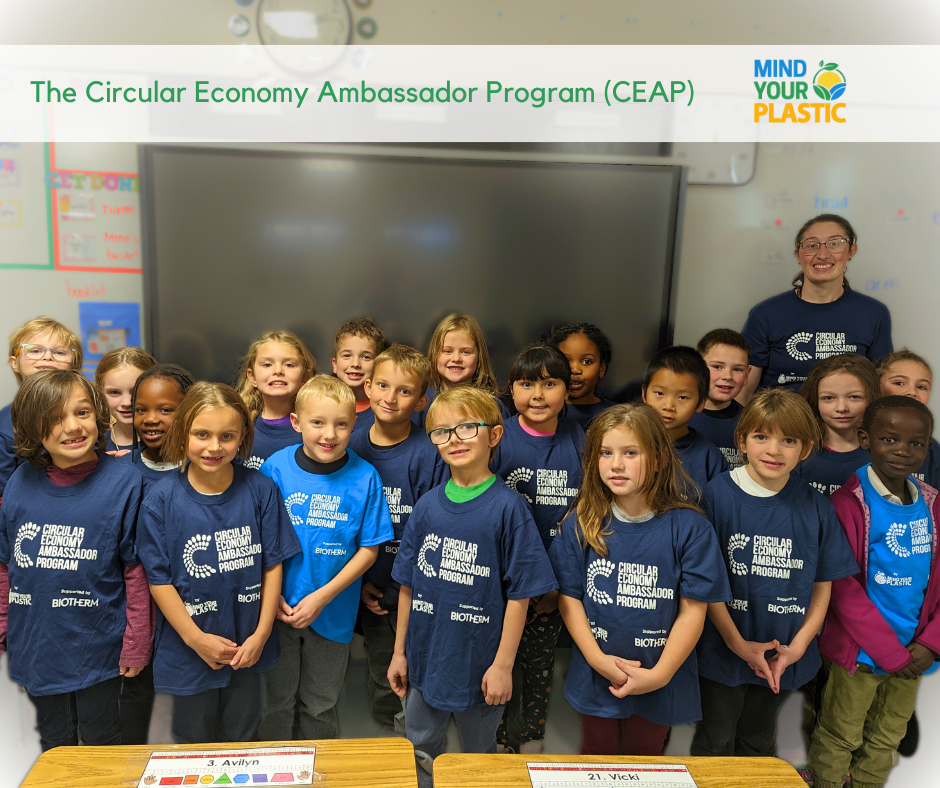
Wake up Canada! It’s Time to Face the Waste
Written by Dayanne Raffoul, Program Coordinator, Mind Your Plastic
Every time you drink from a plastic bottle, rip open a food package and sip from a straw, do you wonder where they go afterwards?
The youth are the future of Canada, therefore it’s never been more important to ensure they are well educated on the issue of plastic pollution. Mind Your Plastic launched their first ever Circular Economy Ambassador Program (CEAP) in 2021, which is a voluntary program led by teachers that aims to teach youth about the widespread, harmful impacts of plastic pollution and what they can do about it.
The program has had over 2000 students participate in conducting cleanups within their communities taking on the challenge of identifying, quantifying, and sorting waste with a goal of diverting their findings away from landfills. Mind Your Plastic provided the teachers with resources that identified their municipal-specific waste management strategies as well as partners that would process hard-to-recycle plastics to demonstrate the importance of circularity in our economy. In addition to their data collection tasks, students were asked to speculate how the waste got there in the first place by identifying leakage points within their cleanup areas. The data collected by participants is constantly added to Mind Your Plastic’s database that consolidates all of the data from the cleanups across Canada to tell a story of what is happening from coast to coast. The story this data told was significant - we have a plastic problem. Now, this may not come as a surprise for a general concept, but over 50% of the items collected were composed partially or entirely of plastic material. Aside from learning about the abundance of plastic pollution in our environment, one of the biggest goals of this program was to provide students with the opportunity to get thinking about how the waste is making its way into the environment and encouraging them to discuss the waste source. These identified sources ranged from industries to individuals and poor waste management strategies (including those in areas that are heavily saturated with corporations that rely on single-use plastic and packaging). Upon returning to the classroom, the students within the CEAP learned the importance of using and developing sustainable alternatives to reduce waste by reusing and repurposing materials. Students were given the opportunity to divert plastics that typically wouldn’t be recycled, such as mixed plastics or plastics that had degraded past the point of value, by sending them to local entrepreneurs that process these plastics into new products! Ultimately, participants came out of this program with a well-rounded knowledge of why plastic pollution is a significant issue, what causes it, and solutions for future prevention.
It is estimated that about 80% of the plastic debris found within our oceans comes from land-based activities. If this continues, scientific studies show that by 2050 we will have more plastic than fish in the ocean. Furthermore, although plastic may seem harmless within our hands it is a well-known pollutant, with notorious negative impacts such as entanglement of marine life, habitat destruction, ingestion and bioaccumulation of contaminants, which threatens animals and poses a health risk to humans as contaminants reach our plates. Since I believe most of us would not appreciate having some extra chewable sushi in the near future, the plastic pollution crisis needs to end now.
What can we do to prevent these issues from happening? First and foremost, promote a circular economy within your community! Within a circular economy, everything is reused, recycled and rebuilt to be reinserted into the economy instead of trashing what we've used and creating new products entirely. A circular economy prevents the production of waste, creates thousands of jobs, and is estimated to provide billions of dollars in revenue for countries like Canada. It is a win-win situation! That is a big-picture task and it won’t happen overnight, but fret not! There are ways that you can make a difference immediately, while advocating for a transition to a circular economy. One of the most important is to refuse the unnecessary, but you can also consider using reusable containers, informing yourself and others about the different recycling programs within your municipality and recycling everything you can, advocating for material/design change to prevent littering, etc. Your small action can motivate others, creating a behavioural change domino effect, eventually reaching governmental officials who are able to concretize a circular economy within various communities. As Howard Zinn would say, “Small acts, multiplied by millions of people, can transform the world.” Let’s do it together!
To learn more visit: https://mindyourplastic.ca/
